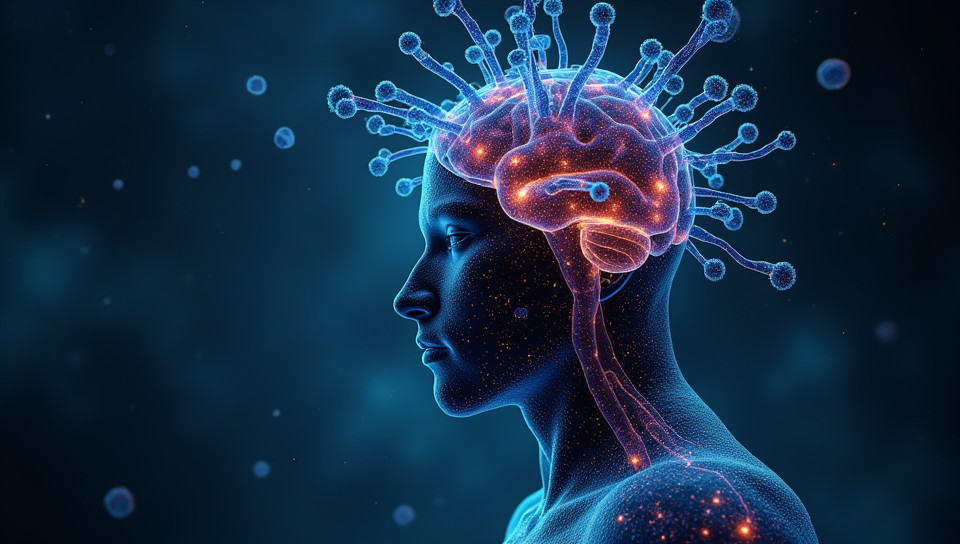Psychobiotics interact directly with the host's nervous system 79%

The Gut-Brain Connection: How Psychobiotics Shape Our Minds
For centuries, we've been fascinated by the mind-body connection, and recent discoveries have shed light on a crucial aspect of this relationship: the gut-brain axis. At the heart of this intricate network lies a group of microorganisms that are rewriting our understanding of mental health: psychobiotics.
What are Psychobiotics?
Psychobiotics are live bacteria or yeast with probiotic properties, but unlike traditional probiotics, they have been specifically designed to interact with the nervous system and modulate its activity. These microorganisms can be found in fermented foods such as kimchi, kefir, and sauerkraut, as well as in certain supplements.
The Direct Link Between Psychobiotics and the Nervous System
Research has shown that psychobiotics can interact directly with the host's nervous system through various mechanisms. Here are some key ways they influence our brain function:
- Modulating neurotransmitter production: Psychobiotics have been found to produce neurotransmitters such as serotonin, dopamine, and GABA, which play a crucial role in regulating mood, motivation, and stress response.
- Influencing the gut-brain axis: The vagus nerve, often referred to as the "gut-brain highway," connects the gut to the brain. Psychobiotics can communicate with this nerve, sending signals that affect brain activity and behavior.
- Interacting with glial cells: Glial cells are non-neuronal cells in the brain that support neurons and maintain their health. Psychobiotics have been shown to interact with these cells, potentially influencing synaptic plasticity and neural function.
The Impact of Psychobiotics on Mental Health
The effects of psychobiotics on mental health are vast and varied. Studies have demonstrated:
- Improved mood: Psychobiotics have been linked to reduced symptoms of anxiety and depression.
- Enhanced cognitive function: These microorganisms may improve memory, attention, and processing speed.
- Reduced stress response: By modulating the gut-brain axis, psychobiotics can help alleviate stress-related disorders.
Conclusion
The discovery of psychobiotics has opened up new avenues for understanding the complex relationship between our gut microbiome and brain function. As research continues to unravel the intricacies of this connection, we may uncover new treatments and preventive measures for a range of mental health conditions. By harnessing the power of psychobiotics, we can take a significant step towards unlocking the secrets of the human mind.
- Created by: Anzu Maruyama
- Created at: Dec. 1, 2024, 11:36 a.m.
- ID: 16370
